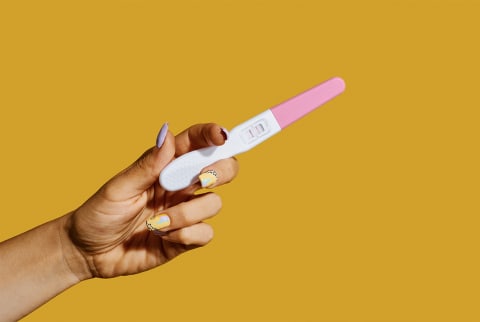These Foods Could Increase Your Risk Of Fertility Challenges By 86%, Study Finds


Fertility is inherently a sensitive subject, especially given that so many factors feel out of our control. That being said, it can bring peace of mind knowing that some influence lies in your hands, including your diet.
New research suggests certain dietary patterns may be able to help increase fertility while others could be working against it.
New study finds pro-inflammatory diet affects fertility
A recent cross-sectional study published in Nutritional Journal found that a pro-inflammatory diet increases the probability of fertility challenges in women by 86%.
A total of 4,437 women (411 with fertility challenges and 4,026 without them) partook in this study. Women who followed a special diet, ate below 800 or above 4,200 calories in a day, or had conditions such as neurological, hepatic, and endocrine diseases that could interfere with the results were not included in the study.
Each participant completed Food Frequency Questionnaires (FFQs) to determine their Dietary Inflammatory Index (DII) score. The DII score takes into account 45 food parameters, including things like fiber content, vitamin content, fat content1, etc. The higher the DII score, the higher percentage of pro-inflammatory foods in the participant's everyday diet.
The group was split into four quartiles: the first quartile with the lowest pro-inflammatory score and the fourth quartile with the highest.
After analyzing the data, researchers concluded that those with higher DII scores were up to 86% more likely to have fertility challenges than those with low scores.
A possible explanation as to why this association exists could be that less inflammation in the body allows for enhanced ovarian cell (also called oocytes) quality and quantity, contributing to improved fertility.
A major caveat
What is a pro-inflammatory diet?
Now for the most obvious question: What is a pro-inflammatory diet, really? This term means eating in a way that increases chronic inflammation in the body. Examples of pro-inflammatory foods include refined sugars, processed meats, and processed carbohydrates.
While this study doesn't list specific foods to consume or avoid, the general direction suggested is moving toward more whole and natural foods.
Interestingly, the fiber intake was the highest in the first quartile group, even though the total caloric intake was the lowest.
"Our findings showed that a diet rich in vegetable fibers and omega-3 fatty acids and low in unhealthy dietary factors such as high simple sugars and saturated fats can be considered an appropriate approach for reducing the risk of infertility," researchers said.
There's no universal anti-inflammatory diet that will work for everyone, but you can work to swap out refined sugars and processed foods for natural, fiber-rich items. Here are a few tips to take with you:
- Consume at least 25 grams of fiber every day
- Limit saturated fat to 10% of your daily calories
- Consume foods rich in omega-3 fatty acids
- Use healthy cooking oils and limit seed oils
All of this to say: Your diet is certainly not the only factor that affects your fertility. However, it is one of them that is more in your control, so it's worth experimenting with limiting pro-inflammatory foods when looking to conceive (and other times for general health, we might add).
But remember: Chronic inflammation stems from many sources beyond just your diet. This includes stress, poor sleep quality, lack of daily movement2, and so on. So consider taking a holistic approach to reducing inflammation rather than hyper-focusing on overhauling your diet overnight. That will only lead to more stress and thus, more inflammation.
The takeaway
While many factors contributing to fertility may be out of your control, your food choices could have an influence. A recent study found that a pro-inflammatory diet increases fertility challenges by 86%, so do your best to consume more anti-inflammatory foods when possible.

Hannah Frye is the Assistant Beauty & Health Editor at mindbodygreen. She has a B.S. in journalism and a minor in women’s, gender, and queer studies from California Polytechnic State University, San Luis Obispo. Hannah has written across lifestyle sections including skin care, women’s health, mental health, sustainability, social media trends, and more. She previously interned for Almost 30, a top-rated health and wellness podcast. In her current role, Hannah reports on the latest beauty trends and innovations, women’s health research, brain health news, and plenty more.